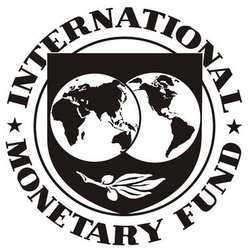The chances of another global financial meltdown are increasing significantly, the International Monetary Fund (IMF) warns. It is no longer a question of whether the financial crisis of 2007/8 will make a comeback, but when.
The flaws in the global system that allowed the last crisis to occur plus the Great Recession that followed have not yet been properly fixed, the IMF told finance ministers and central bankers who have gathered in Peru’s capital, Lima. Its latest Global Financial Stability report does not have much to be optimistic about.
The easing of monetary policy, which helped boost growth in the advanced economies after the 2008 crisis, has not been followed by a more sustainable recovery. The fear is that without the help of super-low borrowing costs, economies will rapidly run out of steam and start sinking.
 José Viñals said the world is not prepared for an increase in interest rates in the advanced economies.
José Viñals said the world is not prepared for an increase in interest rates in the advanced economies.
Asset bubbles and big debts are back
All that cheap money, which was supposed to save the developed economies, poured into emerging markets, creating inflated assets bubbles and mega debts.
The balance sheets of banks and other companies in the emerging markets have been stretched so thin that the IMF doubts they will be able to absorb financial stresses. In the private sector, the amount of debt has exploded, particularly among commodity producers.
Financial institutions in the emerging markets do not yet hold enough capital to cover bad debts. The IMF fears that in several parts of the world, a Lehman Brothers type bankruptcy could trigger another worldwide panic.
Some markets today are very ‘brittle’. The IMF added that “Shocks may originate in advanced or emerging markets and, combined with unaddressed system vulnerabilities, could lead to a global asset market disruption and a sudden drying up of market liquidity in many asset classes.”
The world is simply not prepared for a return to peacetime interest rates, the IMF warns.
Many trillions in excessive borrowing
Financial Counsellor and head of the IMF’s Monetary and Capital Markets Department, José Viñals, who presented the report, says it estimates that in the emerging markets there is up to $3.3 trillion in over-borrowing.
The lending orgy has come to an end, Mr. Viñals explained. China’s economic slowdown has helped sink oil prices, as well as the prices of minerals and other commodities.
He doubts that a string of bankruptcies in the emerging markets would simply stay there, i.e. the rest of the world, including the advanced economies, would eventually be brought down too.
Mr. Viñals said:
“Vulnerabilities in emerging markets are important, given their significance to the global economy, as are the role of global markets in transmitting shocks to other emerging markets and to advanced economies. The recent financial market turmoil is a demonstration of this materialization of risks.”
The IMF is urging the rich nations to remain accommodative. The Fund wrote:
“Monetary policies in key advanced economies must remain accommodative. Both the euro area and Japan will need to continue to counter downward price pressures. Amid more uncertainty in the global economy, the United States should wait to raise policy rates until there are further signs of inflation rising steadily, with continued strength in the labor market. The pace of subsequent policy rate increases should be gradual and well communicated.”
Experts said this week that by the end of this year, 2015 will be the worst year in Wall Street since 2008.
OECD statistics for October suggest that global growth is going to ease.
Video – Global financial crash risk grows
The IMF says the risk of a global financial crash has increased in 2015 because China’s slowdown and weak world trade are harming the emerging economies. The IMF said the emerging economies’ high debts are vulnerable to higher interest rates in the United States. It urges policymakers to act quickly to strengthen the financial system.

